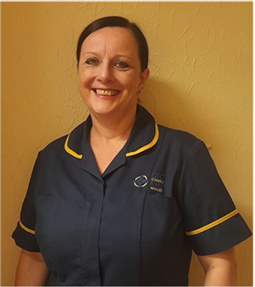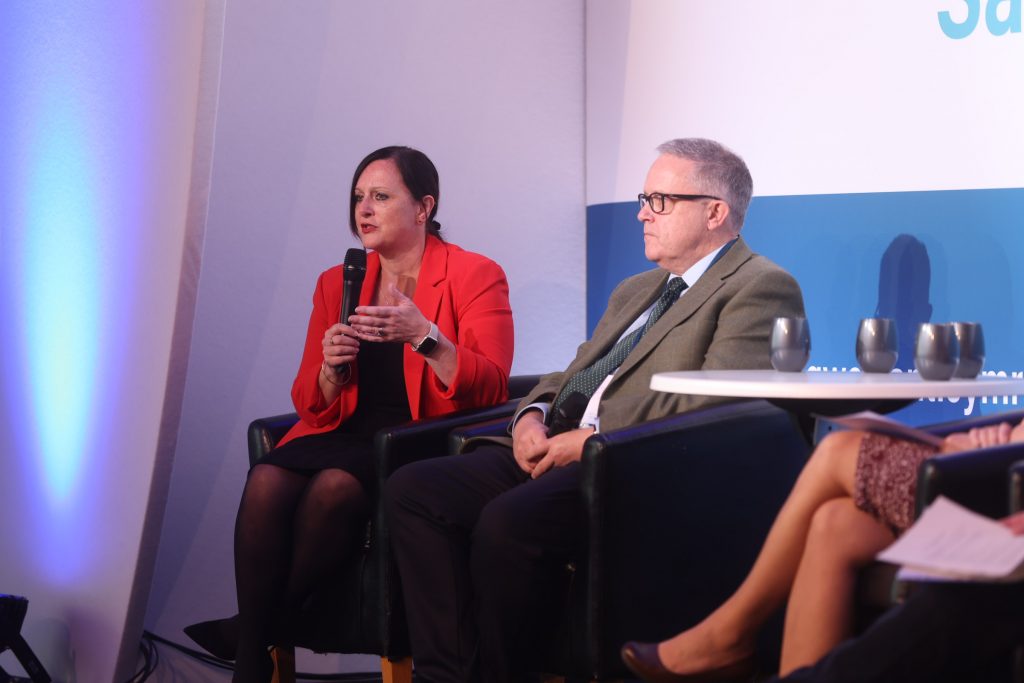Our journey in building a learning system
By Jennifer Winslade, Executive Director of Nursing, Aneurin Bevan University Health Board

We have a real focus on patient stories and learning in our health board. We do this through conversations with the public to bring patient stories to life. It is what makes a difference. Quality Improvement is really important in Aneurin Bevan. We say ‘QI is just the AB way’ and that’s how we have embedded it in practice.
When I joined Aneurin Bevan University Health Board nearly two years ago, the organisation was ready to make a change and ready for the journey of improvement. There was a lot of energy and will. I was struck by how people really wanted to do the right thing and that’s really hard in a situation where things are very busy. Working with James Calvert, Medical Director, Aneurin Bevan University Health Board, we have been engaging with our staff to garner their energy and expertise. We have really talented individuals in the organisation who want to drive improvement and take the organisation forward on our improvement journey. The energy and creativity was already there and James and I have just helped to unlock it. The most important thing we’ve done is support people to make the change. Executives might have a view, but they don’t have all the answers, so we need to work with people to find out what can be different.
How do you help enable psychology safety to allow staff to raise concerns?
We’re on a journey. Spending time with staff on the ground, and spending time with the teams involved in the Safe Care Collaborative helps us because we don’t know what we don’t know. When we listen to people, the feedback loop is very important. We can tell people we’ve heard what you’ve said, this is what we’ve done and we’ve learnt – being able to demonstrate this to staff and patients is an incredible part of the journey. When we developed our quality strategy, we developed a listening framework for patients. We don’t have a top-down culture anymore. Staff from all levels of the organisation can say ‘that’s not right’. The biggest areas of change come from staff.
How have you supported transparency of data?
We’ve invested a lot in data and measurement and we have further work to do. We’re not going to get it right first time, so we need to test. Getting to grips with data is a big challenge, but we need to do it because data shows us the improvement and it is so powerful when you can combine it with patient stories. Our Board were so moved when teams from the Safe Care Collaborative presented their projects using data and experience showing what they have done to improve patient safety.
How are you building your capability for improvement as an organisation?

I am incredibly ambitious about quality. I think everybody underestimates their capacity and capability to be the best. From a QI perspective, we have all the ingredients to be one of the best in the world. We have great people with great ideas. We have got people who are very tired with the system as it is, but they know what needs to change. We need our staff to have the capacity and capability, and we then provide the support they need to unblock the issues. We need to facilitate them, garner their expertise and be the best we can be. I am so proud of the work the teams have done because they have kept the faith and kept going despite winter pressures. They’ve been able to tell us what needs to change.
Culture eats strategy for breakfast. But strategy has provided us with a platform to talk and engage. We have a passion for QI across the organisation, from floor to board. We want to give staff the capability, expertise and support. This will make lives easier in the long run. How do we demonstrate a difference and support people within that? We need visibility, support and to give people the tools they need to do the job.
What’s changed for you as you’ve been on this journey?
I try to be as visible as possible. It is hard with 16,000 staff spread across a large geographical area, but I try to spend as much time with staff as I can, so I get a better understanding of what does need to change. With over 17 years as a nurse director, I always say do what is right then apologise later. Don’t wait for permission if something is unsafe and needs to change.
You can find out more about the Safe Care Collaborative here.
